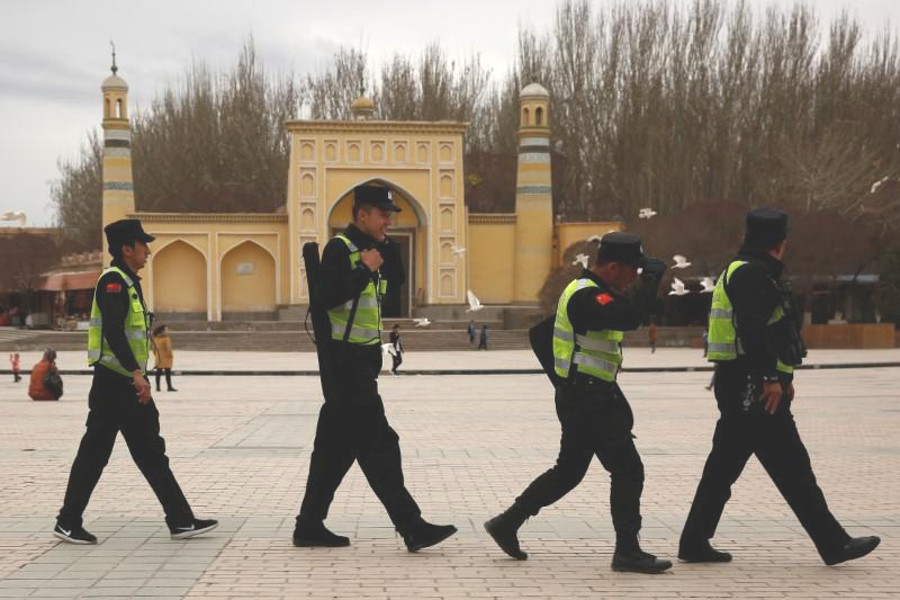

By: Bruce Pannier, Muhammad Tahir
Source: RFE/RL
China’s campaign against Uyghur nationalism, branded by Beijing as separatism, has abruptly spiked in the last two years and spread beyond just the Uyghurs.
Beijing’s earlier attempts to simply keep control over the Uyghurs of the Xinjiang Uyghur Autonomous Region have given way to an all-out offensive that has seen new regulations for clothing and personal appearance, restrictions on observing Islamic rituals, the closure of mosques, and the incarceration of more than 1 million Uyghurs, according to many reports, in so-called political reeducation camps.
The campaign, which is clearly targeting the Muslims of Xinjiang, has widened and no longer includes just Uyghurs. Kazakhs, Kyrgyz, Tatars, Hui (Han Muslims), and now there are even reports that some Uzbeks are also being taken to the reeducation camps in Xinjiang.
Some of those caught up in this huge net in Xinjiang are officially now citizens of Kazakhstan and Kyrgyzstan.
Their disappearance across the border in China has been noticed by relatives and friends in Central Asia, and those who have been released from these reeducation camps and crossed back into their new homelands in Kazakhstan and Kyrgyzstan are finding a growing domestic and international audience waiting to hear their stories.
The governments in Kazakhstan and Kyrgyzstan find themselves in an uncomfortable situation.
China is a major — and often the major — trading partner and investor in the Central Asian states, but the growing resentment among the people of Kazakhstan and Kyrgyzstan over China’s policies in Xinjiang cannot be ignored by officials in Astana and Bishkek.
On this week’s Majlis podcat, RFE/RL’s media-relations manager, Muhammad Tahir, moderates a discussion on the repercussions of Beijing’s policies in Xinjiang among the people and governments in Central Asia.
Participating in the discussion from Washington is Sean Roberts, the director of international development studies at George Washington University and a leading authority on the Uyghurs and Central Asia.
In the studio in Prague, we are joined by Tyntchtyk Chorotegin, a well-known Kyrgyz historian and former director of RFE/RL’s Kyrgyz Service (known locally as Azattyk), and Torokul Doorov, the director of RFE/RL’s Kazakh Service (known locally as Azattyq).
I’ve been writing about the Uyghurs for many years, so I also had something to say about this shocking turn of events.
Listen to the Podcast of this story:



